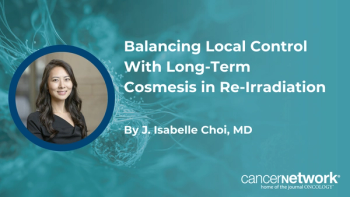
Age Not Predictive of Recurrence in HER2 Breast Cancer
A retrospective analysis of the HERA trial indicated that young age was not associated with early recurrence in women with HER2-positive breast cancer, despite previous research suggesting that young age at diagnosis might be a risk factor for recurrence and death.
A retrospective analysis of the HERA trial indicated that young age was not associated with early recurrence in women with HER2-positive breast cancer, despite previous research suggesting that young age at diagnosis might be a risk factor for recurrence and death.
Results,
“Our findings suggest that as breast cancer continues to be better characterized molecularly, and therapies such as trastuzumab are developed to target molecular subtypes, the importance of age with regard to prognosis will continue to diminish, if not disappear,” wrote researchers led by Ann H. Partridge, MD, MPH, of Dana-Farber Cancer Institute.
Partridge and colleagues initiated this retrospective study of women in the HERA trial because there were few data to date examining age as a risk factor in breast cancer according to tumor subtype. The results were taken from 2-year median follow-up of 1,703 women assigned to 1 year of trastuzumab and 1,698 women assigned to observation. The study population included 722 women aged 40 years or less (21% of patients).
The results of the study indicated no difference in disease-free survival or overall survival by age group in either treatment group of the study. The hazard ratio for disease-free survival for women aged 40 years or younger compared with women aged older than 40 years was 1.18 for the observation group, and 1.11 for the trastuzumab group. The hazard ratio for overall survival in women aged 40 years or less compared with older women was 1.01 for the observation group and 1.18 for the trastuzumab group.
Overall survival was similar for both treatment groups of women. However, an analysis of women in the trastuzumab group indicated worse survival in women treated with taxanes (HR = 2.65; 95% CI, 1.51–4.66) and improved survival in women treated with anthracyclines (HR = 0.29; 95% CI, 0.12–0.71), results that the researchers said were hypothesis generating and that warranted further research.
The researchers cautioned that a limitation of the study was a short follow-up period and that with longer follow-up, “results for patients with ER-positive disease, in particular, may change.”
“Future research is clearly warranted to investigate these interactions,” the researchers wrote.
“Furthermore, evaluation of whether age is a predictor of later recurrence and long-term overall survival in women with HER2-positive disease as well as among women with other tumor subtypes is needed.”
Newsletter
Stay up to date on recent advances in the multidisciplinary approach to cancer.













































